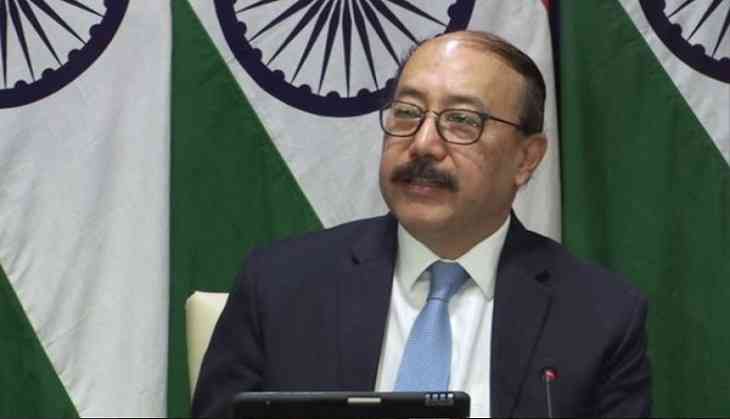Border Dispute: India apprises Japan about talks with China on border-related issues in Ladakh

India on Saturday briefed Japan about the talks with China to resolve the standoff in eastern Ladakh with the visiting Japanese Prime Minister Fumio Kishida apprising Prime Minister Narendra Modi about his perspective vis-a-vis East and South China sea.
India also made it clear unless there is a resolution of the border issues with peace and tranquillity, it could not consider the relationship with China to be business as usual and normalcy would depend on the progress in issues being discussed by the two countries.
Addressing the media about the visit of Fumio Kishida to New Delhi for a summit meeting with PM Modi, Foreign Secretary Harsh Vardhan Shringla said both the leaders discussed their engagement concerning China.
"We informed Japan of the situation in Ladakh, the attempts of amassing the troops, and our talks with China on border-related issues... Japanese PM also briefed us on his own perspective vis-a-vis East & South China sea," Shringla said.
"We made it clear that unless we have a resolution of the border issues with peace & tranquility, we could not consider the relationship (with China) to be business as usual; normalcy would depend on the progress in issues we're discussing," he added.
The actions of the Chinese Army had led to a standoff in eastern Ladakh in April-May 2020 and there has been disengagement from some points following talks between the countries.
The two countries have held talks to for disengagement from the remaining friction points along the Line of Actual Control.
The joint statement 'for a Peaceful, Stable and Prosperous Post-COVID World' released after the summit, said India and Japan reaffirmed their determination to continue prioritizing the role of international law, particularly the United Nations Convention on the Law of the Sea (UNCLOS).
The Prime Ministers emphasized that India and Japan, as two leading powers in the Indo-Pacific region, had a shared interest in the safety and security of the maritime domain, freedom of navigation and overflight, unimpeded lawful commerce and peaceful resolution of disputes with full respect for legal and diplomatic processes in accordance with international law.
"They reaffirmed their determination to continue prioritizing the role of international law, particularly the United Nations Convention on the Law of the Sea (UNCLOS), and facilitate collaboration, including in maritime security, to meet challenges against the rules-based maritime order in the East and South China Seas. They emphasized the importance of non-militarisation and self-restraint," the release said.
"They further called for the full and effective implementation of the Declaration on the Conduct of Parties in the South China Sea and the early conclusion of a substantive and effective Code of Conduct in the South China Sea in accordance with international law, especially UNCLOS, without prejudice to the rights and interests of all nations including those not party to these negotiations," it added.
There have been tensions between Japan and China over Senkaku island amid rising Chinese activities in waters surrounding the islands. Japan controls the islands. The Japanese government maintains that they are an inherent part of Japan's territory. Both China and Taiwan claim them.
The two Prime Ministers remained concerned about the situation in Myanmar and called for an end to violence, the release of all those detained and a return to the path of democracy.
They reaffirmed their support for ASEAN efforts to seek a solution in Myanmar and welcomed Cambodia's active engagement as ASEAN chair to break the deadlock. They called on Myanmar to urgently implement ASEAN's Five-Point Consensus, stated MEA in its statement.
Shringla said the India-Japan relationship is not only important bilaterally but also for the Indo-Pacific and the world at large. He noted that on the bilateral side, PM Modi and Kishida discussed the entire range of areas including economic cooperation, digital cooperation and cooperation for the development of the North East Region of India.
He said that PM Modi and Japan PM held detailed discussions on regional and global issues.
Shringla also referred to the agreements reached during the visit of Japan PM including a memorandum of cooperation on cyber security, a memorandum of cooperation in the field of sustainable development and a memorandum of cooperation on wastewater management.
(ANI)

